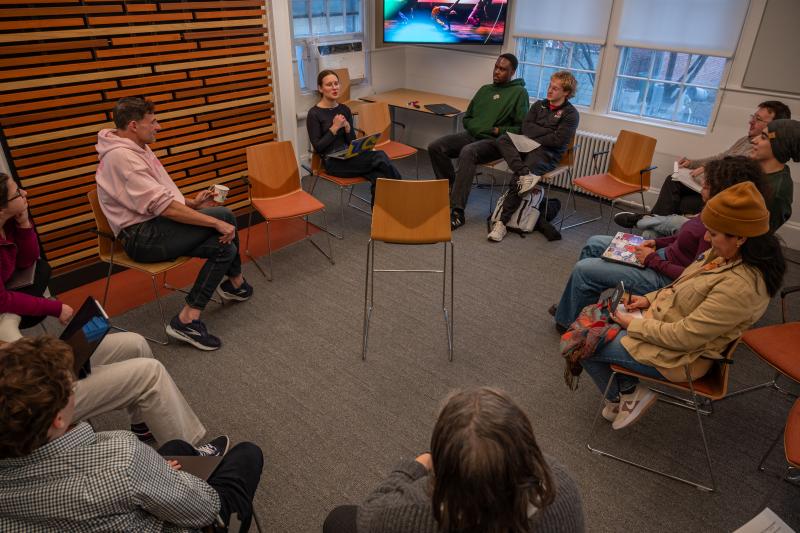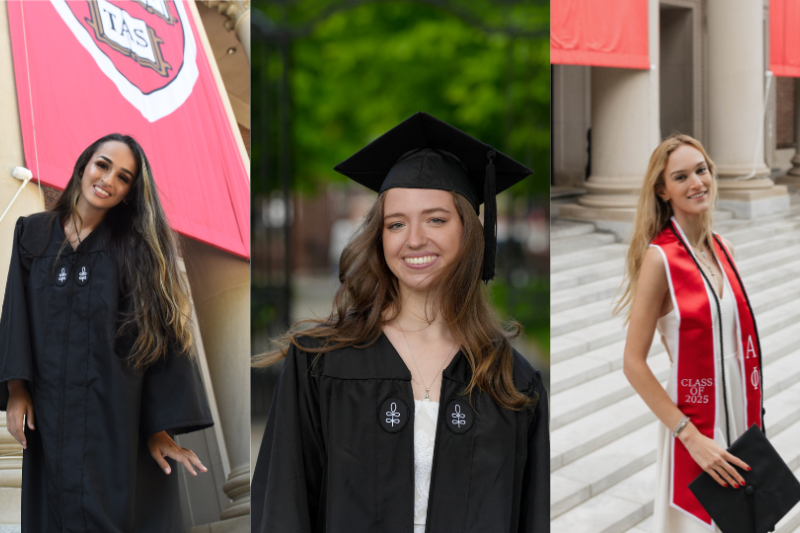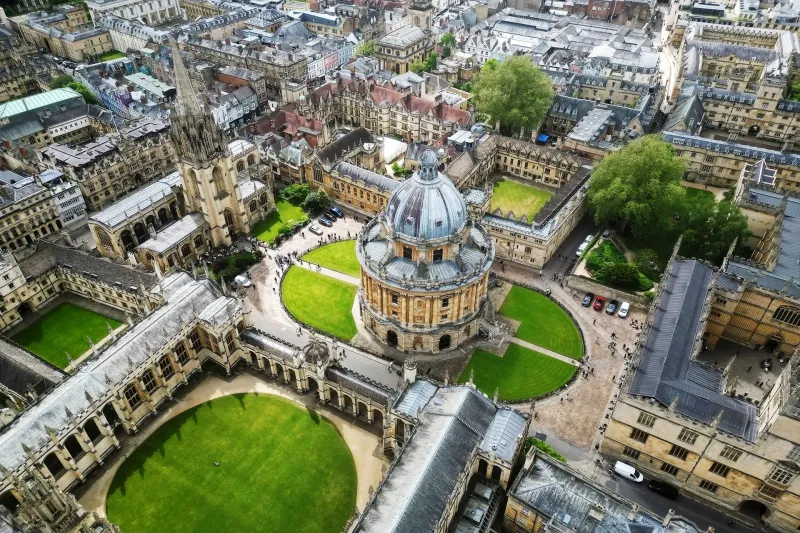
Exploring Sophomore Concentration Declaration
Each October, Harvard College sophomores fill Tercentenary Theatre to mark a major milestone in their undergraduate education. The moment when students proudly hold up banners to proclaim their concentration is a culmination of their past three semesters of academic discovery and signifies the beginning of a deeper academic journey.
When new students arrive on campus, they are initially “undeclared” first-years. While many may already be thinking of an intended concentration, Harvard College policy prevents official declaration until the beginning of their third semester. Until that point, Harvard encourages students to explore their interests in a variety of programs, without the added pressure of a predetermined academic track. From first-year seminars to introductory courses, students have the opportunity to take courses on subjects they may have never considered studying before, or wanted to but were previously restricted from due to their major's requirements. This exploratory period enables students to uncover truths about their own passions and foster a space for intellectual curiosity. For sophomore student Isaiah, ’28, “having the academic freedom to explore the social sciences while taking great classes,” was pivotal to his concentration decision.
Throughout the first year, students participate in various events, such as the ‘Exploring Fields of Study’ program in the spring semester, in addition to one-on-one information sessions with faculty and upperclassmen, to gain more information about the unique factors that shape the curriculum and departmental communities. Through additional discussions with their Harvard support networks, including staff, Pre-Concentration Advisors, Peer Advising Fellows, and more, the sophomores continue to learn about the scope and diversity of each concentration.
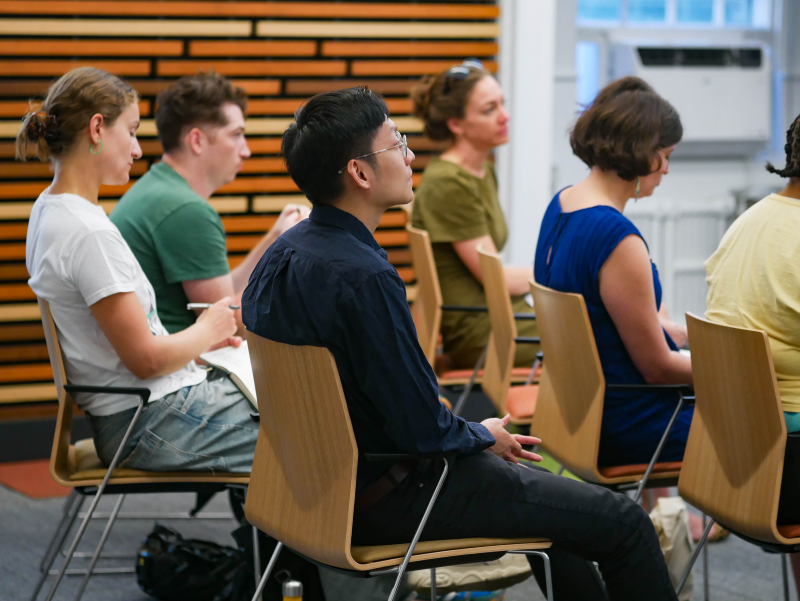
As students begin their sophomore year, they begin the formal declaration process and start to craft their individualized four-year academic plan. Many departments require students to meet with concentration advisors to review requirements and develop tailored study plans. This close collaboration enables the department to understand the students’ goals and needs, and provides students with the opportunity to ask any remaining questions regarding the inner workings of the concentration.
Upon declaration, students are then assigned a concentration advisor who will oversee their remaining three years at Harvard and ensure they excel as they navigate their new specialization. The concentration advisors provide guidance regarding course selection, research and internship opportunities, and thesis finalization.
Despite the lengthy process, students are not permanently bound or limited to their concentrations. “Concentration is not a defining label, but rather an opportunity for growth and learning,” advisors at the Mignone Center for Career Success said.
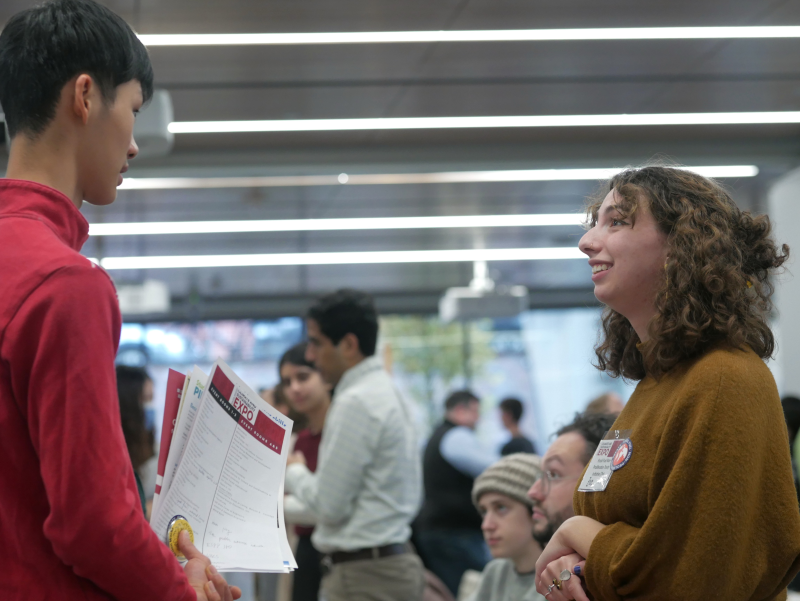
MCS advisors aim to inspire confidence and excitement in students’ next steps by offering self-assessments and exploration options to help analyze how specific interests and skills may align with potential careers. MSC’s various events, such as “Sophomore Career Planning: Concentrations to Careers,” further highlight the flexible nature of Harvard’s academic pathways and demonstrate the numerous ways concentrations can translate to diverse career opportunities.
At the core, the Mignone Center for Career Success emphasizes to students that their academic journey has only just begun, and their concentration is merely part of their ongoing, broad career and professional journey.
Ultimately, concentrations are a gateway into understanding one’s lifelong pursuits. “I am planning on concentrating in Neuroscience because I’m passionate about how communities and people respond to harm and trauma,” said Zain, ’28. “Neuroscience offers a unique opportunity to study how [those] affect one’s brain long term.”

